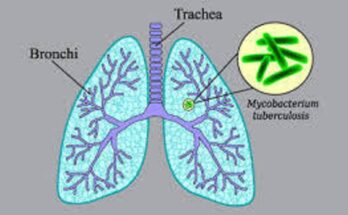Here is a comprehensive guide for solution-focused work with individuals, families, groups, organizations, and communities. Statins have fully transformed the management of hypercholesterolemia and prevention of cardiovascular diseases (CVD). These drugs, well known for their functionality in lowering cholesterol levels, have reduced the death rate in a considerable measure after they were introduced into the market in the late 1980s. However, as with most drugs, the pros come with disadvantages and health complications or side effects associated with the long-term use of statins. The present article has intended to give a proper insight into the various outcomes of the long-term use of Statins by incorporating the findings of the recent research and Physician reviews.
What Are Statins?
Statins are a group of drugs which help to lower the concentration of low density lipoprotein cholesterol (LDL-C) in the blood moving its name HMG-CoA reductase inhibitors. Nash pointed out that LDL-C is often referred to as ‘bad’ cholesterol because elevated levels contribute to the formation of plaque in arteries and ultimately to heart attacks and stroke. Statins are typically used to lower cholesterol levels by inhibiting the liver’s synthesis of cholesterol through the impact on the enzyme HMG-CoA reductase.
The Benefits of Long-Term Statin Use
Cardiovascular Protection
The primary ‘side effect,’ thus, of statin treatment is the reduction of LDL-C and the related potential for fewer cardiovascular events. Many research has revealed that statin therapy can greatly reduce the risk of heart attacks, strokes and other cardiovascular diseases in patients that have been on long-term statin therapy. For example, meta-analysis from *The Lancet* noted that with use of statins progression of major vascular events is reduced by about 25% for each mmol/L reduction in LDL-C.
Longevity and Quality of Life
Thus, one gains profound insights into how and why statin medication helps in preventing cardiovascular diseases and, therefore, extends human’s life expectancy and enhances the quality of living. Lancet commented that many patients benefit from statins in the long term, and their quality of life improves as their health is much less interrupted.
Potential Side Effects of Long-Term Statins Use
However, despite the vast advantages that statins have, there are also disadvantages or side effects associated with them. As earlier established, most of the patients who take statins rarely exhibit side effects despite the fact that, some are likely to manifest them especially if they are long-term consumers.
Muscle-Related Symptoms
Many people experience myopathy or muscle pain as a side effect of statins. The symptoms range from simple muscle pain to more serious conditions like myositis or even rhabdomyolysis, where muscles deteriorate and release their contents into the bloodstream. Although a significant number of patients have never reported severe muscle side effects, this risk is still associated with statin therapy.
Liver Enzyme Elevations
It is understood that they can lead to an elevated serum liver enzyme levels, suggesting liver toxicity and injury. Clinicians should routinely check such liver function parameters in patients using statins for extended periods. This is true because variableness of LFTs is frequently mild and returns to normal after short cessation of the offending drug. However, fatal hepatotoxicity is extremely uncommon [Ref. ].
Increased Risk of Diabetes
Using statins can increase the risk of type 2 diabetes. However, the overall risk is relatively small. A meta-analysis in the *Journal of the American Medical Association* reported a 9 percent increase in diabetes risk. The cardiovascular benefits of statins outweigh this diabetes risk. This is especially true for patients with cardiovascular risk factors.
Cognitive Effects
Users of statins have experienced memory loss and poor thinking, leading to feeble-mindedness. However, good evidence is missing from the evidence proving this hypothesis. Some research suggests a possible relationship between the two. Other studies find no close relationship. The FDA indicates these cognitive effects are usually mild. They can resolve soon after stopping the pill.
Managing Side Effects and Maximizing Benefits of Statins
This tutorial addresses several management strategies related to the side effects of statins while still obtaining cardiovascular benefits.
Dose Adjustment and Switching Statins
You can manage the severity by reducing the dosage or switching to another statin medication. For instance, doctors consider some statins, such as pravastatin and fluvastatin, to be safer forms that do not cause as many muscle-related concerns as simvastatin.
Lifestyle Modifications
A healthy diet enhances the benefits of statins. Patients may get good results with a lower dosage. Regular exercise is necessary for cardiovascular health. Consuming fruits and vegetables in proper proportions is important. Maintaining an appropriate weight is also essential.
Regular Monitoring
There are symptoms that when reported early, the doctor could fix by revising the doses taken or through an alteration of the medications taken. It will also be important to closely monitor liver functioning enzymes and blood glucose to early detect any side effect.
The Future of Statins Therapy
It is researching how to maximize statins’ benefits while minimizing side effects. Scientists develop new formulations and therapies. They study post-genomic drug targeting to match statins to patients’ genotypes for optimal results.
Conclusion
Cholesterol lowering drugs therefore have emerged as crucial tools in mitigating cardiovascular diseases. It is still undeniable that most of the side effects occur in long-term use of statins. But the impact of using statins in prevention of the cardiovascular disease and increase in life expectancy is enormous. Patients can also monitor for possible adverse effects that may arise from statin usage. Always consult with health care practitioners for assistance in attaining and maintaining optimal health.
Taking statins in the long term can indeed be a risky decision. But if done under a doctor’s supervision, the benefits are clearly many times greater than the possible harm. Researchers have also observed that statins produce even better results when combined with other beneficial habits of healthy living. This will create a heart-healthy living environment for the future.





